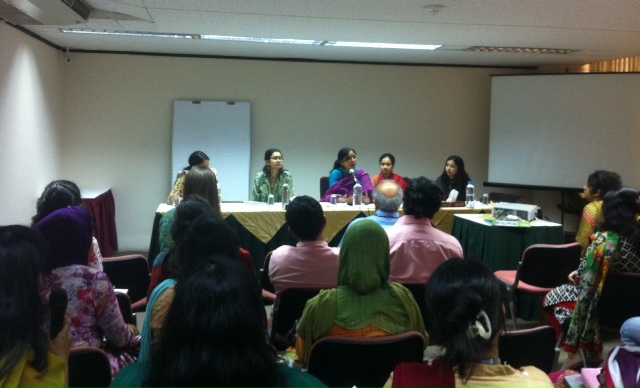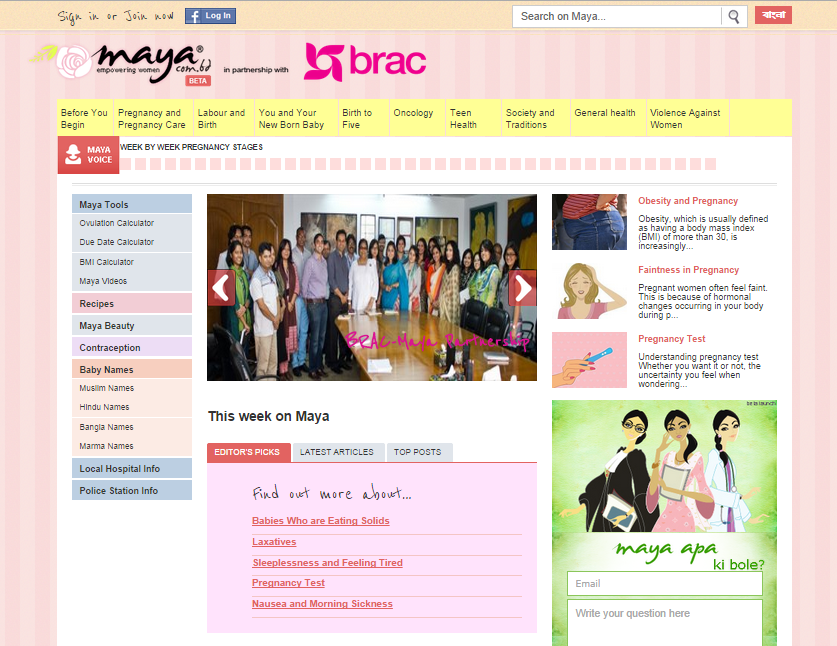By Anjali Sarker
24 April 2013 was a day that Bangladesh would never forget. The collapse of Rana Plaza took lives of more than a thousand RMG workers, making it the worst man-made disaster in the country’s history. While the physical injuries and death toll were evident, the trauma and associated psychological problems faced by the survivors, their families and the rescuers didn’t get much attention.
Disasters like the Rana Plaza collapse unveiled the hidden emergency and lack of psycho-social support infrastructure in the country. During last month’s Innovation Forum, “BRAC’s listening: psycho-social support for all” different BRAC programmes presented how they are offering psycho-social support to the communities. You might wonder what on earth is this psycho-social support? And why should BRAC care?

The term ‘psycho-social’ refers to the inter-connection between psychological and social processes and the fact that each continually interacts with and influences the other. Psycho-social support addresses individual psychological factors as well as the broader social factors that influence mental health and behavior. In the last few years Gender, Justice & Diversity (GJD), Community Empowerment Programme (CEP) and Disaster, Environment and Climate Change (DECC) have started to work on this issue. At the forum, representatives from these programmes took part in a panel discussion on the topic and shared their experiences. Sakila Yesmin, Coordinator of psycho-social counseling team at Institute of Educational Development , BRAC University moderated the session.
Offering psycho-social support in a society that stigmatizes people who seek this support is extremely difficult. Shamima Sultana from Gender, Justice & Diversity pointed out that many BRAC staffs hesitate to seek support from their psycho-social counseling team as there is no dedicated space for counseling. “What if my colleagues think I am sick? Or even worse, mad?” Concerns like this prevent many from speaking up and asking for help. Given the sensitive nature of the issue and no lack of misconceptions among people, some time asking for help anonymously seems to be more comfortable. Ishrat, another staff from the same programme, showed the BRAC-Maya web site and informed the audience how people outside BRAC can avail psycho-social support from BRAC through Maya.

While Gender, Justice & Diversity offers support for BRAC staff, both the Community Empowerment Programme and Disaster, Environment and Climate Change are providing support services within communities. CEP’s “Monobondhu” pilot project develops community-based psycho-social counselors who are also members of polli shomaj and popular theatre groups. They are trained by a professional clinical psychologist on techniques of psychosocial counseling. Usually they provide psychosocial counseling to survivors of violence and their families and help them to socially reintegrate into their communities. Started in 2013, the project is running in four districts in the country now. On the other hand, realizing how the communities living in the disaster prone areas are much more vulnerable than others, DECC has trained 640 ultra poor women on trauma management. As Lusana Anika Masrur from this programme remarked, “They may not be professional counselors but now they know how to help and support each other in times of trouble- which is important too.”
Mental health is neglected, unexplored and underfinanced in Bangladesh. From the panel discussion it was clear that our stressful lifestyle leaves us significantly vulnerable to psychological problems. Considering the silent nature and scale of the problem- how can we ensure psycho-social support for all? For BRAC, it’s definitely a question worth continuing to explore.
Anjali Sarker is an officer with the BRAC Social Innovation Lab.